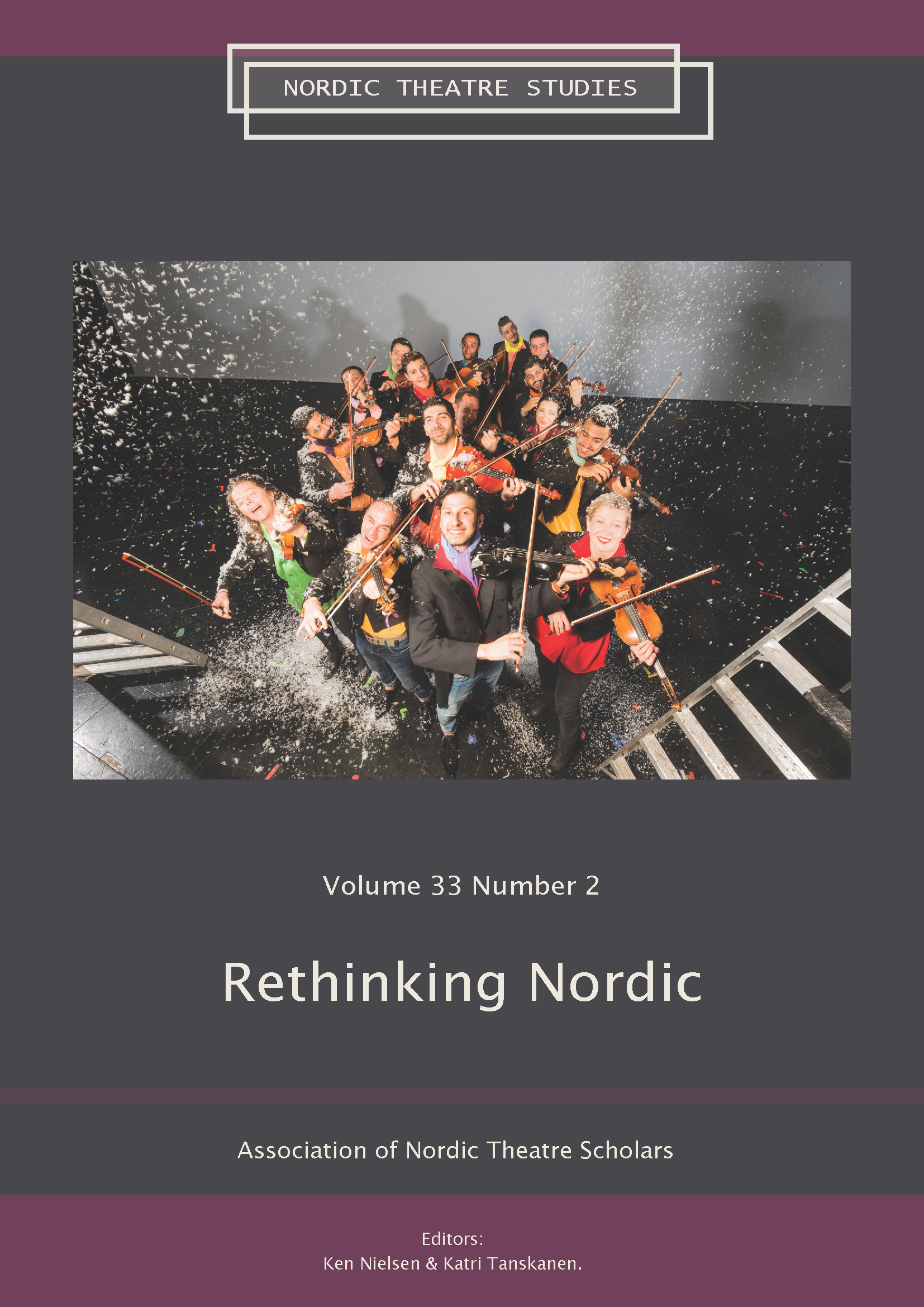Theatre Talks
How to Accommodate Hygge in Theatre Experience
DOI:
https://doi.org/10.7146/nts.v33i2.132872Keywords:
social acceleration, theatre talks, audience development, audience research, oasis of decelerationAbstract
Almost each year, the pop-cultural world is buzzing with a “new” Nordic word that can bring a piece of Nordic life to every home. Lagom, fika, fredagsmys or hygge - they all refer to slowness, break, taking a moment to feel good and happy, being considerate. Those concepts are believed to be a Nordic approach to life - and a very desirable one.
When I think of theatre in this context, one Nordic invention comes to my mind: theatre talks, which emerged as an audience reception research method in Sweden. They proved to be an effective audience development practice (even for non-theatregoers) in Australia (Scollen), Denmark (Hansen; Lindelof), and Poland (Rapior) because (among other things) they bring the element of pleasure, community building, and feeling safe into the theatre experience especially for non-attenders.
In this article I will focus on looking at theatre as a possible “oasis of deceleration” in the constantly accelerating world, using Hartmut Rosa’s theory of social acceleration. By going through the development of theatre talks, I will demonstrate what theatres can gain from using this method - both in attendance and image. I will deliberate on how theatre can become a metaphorically “hyggelig” place for anybody during times when everybody ought to live faster and faster.
References
Dolan, Jill. 2005. Utopia in Performance: Finding Hope at the Theater. Ann Arbor, MI: University of Michigan Press.
Duelund, Peter. 2008. “Nordic cultural policies: A critical view.” International Journal of Cultural Policy 14:1, 7–24.
Freeman, Elizabeth. 2010. Time Binds. Queer Temporalities, Queer Histories. Durham & London: Duke University Press.
Hansen, Louise Ejgod. 2013. “The Democratic Potential of Theatre Talks.” Nordic Theatre Studies 25, 11–21.
Hansen, Louise Ejgod. 2013. Rapport 3 Teatersamtaler som publikumsudvikling. Randers: Scenekunstnetværket Region Midtjylland.
Lindelof, Anja Mølle, Hansen, Louise Ejgod. 2015. “Talking about theatre: Audience development through dialogue.” Participations. Journal of Audience and Reception Studies Volume 12, Issue 1, 234-253.
Rapior, Waldemar. 2019. “Poszerzone metody. Siedem kwestii dla badań kultury zwiększających zakres naszej wolności.” Zarządzanie w kulturze 20:4, 529-549.
Rosa, Hartmut. 2015. Social Acceleration. A new Theory of Modernity. Jonathan Trejo-Mathys (trans.). New York, NY: Columbia University Press.
Sauter, Willmar, Isaksson, Curt, Jansson, Lisbeth. 1986. Teaterögon. Publiken möter föreställningen: upplevelse-utbud-vanor. Stockholm: Liber Förlag.
Sauter, Willmar. 2000. The Theatrical Event. Dynamics of Performance and Perception. Iowa City, IO: University of Iowa Press.
Scheff Bernstein, Joanne. 2007. Arts Marketing Insights. The Dynamics of Building and Retaining Performing Arts Audiences. San Francisco, CA: Jossey-Bass.
Scollen, Rebecca. 2006. New Audiences, New Relationships… Three Years in Review. A Final Report. Brisbane: Queensland University of Technology.
Scollen, Rebecca. 2007. “Theatre Talks Evolve into Talking Theatre.” In Yael Feiler, Rikard Hoogland, Kalle Westerlink (eds.). Willmar in the World: Young Scholars Exploring the Theatrical Event. Stockholm: Stockholm University, 46–58.
Scollen, Rebecca. 2008a. “Regional Voices Talk Theatre: Audience Development for the Performing Arts.” International Journal of Nonprofit and Voluntary Sector Marketing 13, 45-56.
Scollen, Rebecca. 2008b. “Bridging the divide: regional performing arts centres and non-theatregoers introduced.” Applied theatre researcher/IDEA journal 9, 1–18.
Wiking, Meik. 2017. The Little Book of Hygge: Danish Secrets to Happy Living. New York, NY: William Morrow and Company.
Downloads
Published
How to Cite
Issue
Section
License
The copyright belongs to the authors and Nordic Theatre Studies. Users can use, reuse and build upon the material published in the journal but only for non-commercial purposes. Users are allowed to link to the files, download the files, distribute the files on a local network (preferably by links), upload the files to local repositories if their institutions require them to do so, but not republish the files without proper agreements with the journal and the author.

